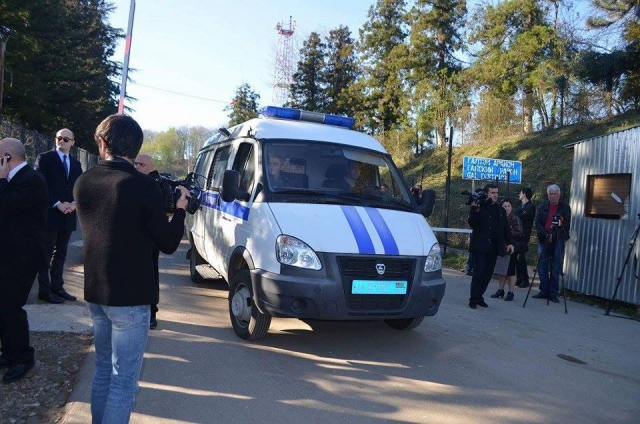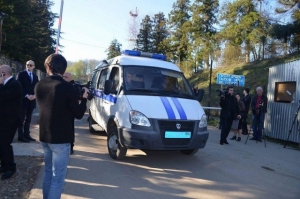Georgia, Abkhazia, South Ossetia in Prisoner Exchange
TBILISI - Georgia’s central authorities on Thursday exchanged 18 prisoners under their custody with its two breakaway regions Abkhazia and South Ossetia, according to Georgia’s Ministry for Reconciliation and Civic Equality.
The initial exchange between the rebel government in Sukhumi and Tbilisi took place on the Inguri Bridge, which separates Georgia from its Moscow-backed separatist region Abkhazia.
The Abkhaz reportedly released eight Georgian nationals, who had been serving lengthy prison sentences in the region
"This humanitarian act was made possible by the recent constructive negotiations in Geneva between Georgia and South Ossetia. Following an official request by (Tskhinvali’s separatist leader) Leonid Tibilov to (Sukhumi’s de facto president) Raul Khajimba, a decision was made to stand with our brothers in South Ossetia," Abkhazia’s acting Foreign Minister Vyacheslav Chirikba said.
However, according to Georgia’s Reconciliation and Civic Equality Minister Paata Zakareishvili, the prisoner swaps were the result of lengthy trilateral negotiations between the representatives of the parties involved.
Georgia released four South Ossetian residents who had been serving life sentences for planning a February 2005 terrorist attack in Gori. The city is situated in central Georgia, less than 10 kilometers from the administrative contact line that separates South Ossetia from federal authority in Tbilisi and only 30 kilometers from the secessionist capital Tskhinvali.
Rebel authorities in South Ossetia reciprocated Tbilisi’s move by releasing 14 Georgian citizens, including one woman, who had been illegally detained for violating the region’s de facto border.
Responding to the exchange, UK Ambassador to Georgia Alexandra Hall released a statement saying the British government welcomed the move.
Georgian government forces have fought three wars against Russian-backed separatist forces in Abkhazia and South Ossetia between 1991-2008. The wars left thousands dead and led to the ethnic cleansing of a quarter of a million ethnic Georgians.
Abkhazia and South Ossetia were recognized as independent states by Moscow following the 2008 war.
International law and the United Nations continue to state that the regions remain parts of Georgia.
Edited by Nicholas Waller












